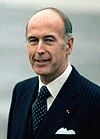French legislative election, 1962
|
|
|||||||||||||||||||||||||||||||||||||||||||||||||||||||||||||||||||||||||||||||||||||||||||||||||||||||||||||||||||||||
|---|---|---|---|---|---|---|---|---|---|---|---|---|---|---|---|---|---|---|---|---|---|---|---|---|---|---|---|---|---|---|---|---|---|---|---|---|---|---|---|---|---|---|---|---|---|---|---|---|---|---|---|---|---|---|---|---|---|---|---|---|---|---|---|---|---|---|---|---|---|---|---|---|---|---|---|---|---|---|---|---|---|---|---|---|---|---|---|---|---|---|---|---|---|---|---|---|---|---|---|---|---|---|---|---|---|---|---|---|---|---|---|---|---|---|---|---|---|---|---|
|
|||||||||||||||||||||||||||||||||||||||||||||||||||||||||||||||||||||||||||||||||||||||||||||||||||||||||||||||||||||||
|
All 491 seats to the French National Assembly 246 seats were needed for a majority |
|||||||||||||||||||||||||||||||||||||||||||||||||||||||||||||||||||||||||||||||||||||||||||||||||||||||||||||||||||||||
|
|||||||||||||||||||||||||||||||||||||||||||||||||||||||||||||||||||||||||||||||||||||||||||||||||||||||||||||||||||||||
|
|||||||||||||||||||||||||||||||||||||||||||||||||||||||||||||||||||||||||||||||||||||||||||||||||||||||||||||||||||||||
French legislative elections took place on 18 November and 25 November 1962 to elect the second National Assembly of the Fifth Republic.
Since 1959 and the change of Algerian policy (Charles de Gaulle decided in favour of the "self-government" and "Algerian Algeria"), France had faced bomb attacks by the Secret Armed Organization (Organisation armée secrète or OAS) which opposed the independence of Algeria, negotiated by the FLN with the March 1962 Evian agreements and approved by referendum by the French people. This policy was disapproved by some members of the "Presidential Majority".
Simultaneously, when Georges Pompidou replaced Michel Debré as Prime minister, the center-right parties (MRP and CNIP) left the majority due to de Gaulle's eurosceptic declaration. Like the Left, they denounced the presidentialization of the regime.
On 22 August de Gaulle escaped from an assassination attempt by the OAS in Le Petit-Clamart. He subsequently announced a controversial referendum in which he proposed the election of the president of the French Republic under universal suffrage. The presidential majority composed of the UNR and the Independent Republicans (RI) (which came from a CNIP split) campaigned for a "yes", while all the other parties formed a "coalition of no" and brought down Pompidou's cabinet by a vote of no confidence (motion de censure).
...
Wikipedia





